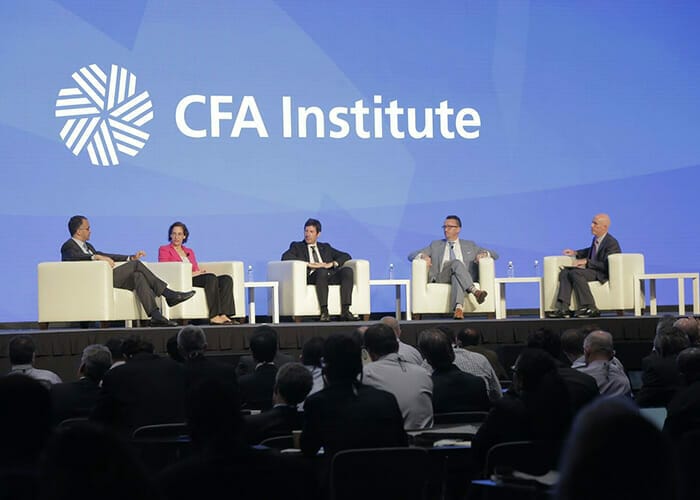Canada Pension Plan Investment Board and Caisse de dépôt et placement du Québec are both bullish on Asia, allocating investments and people on the ground, delegates at the CFA Institute Annual Conference heard.
The C$350 billion ($272 billion) CPPIB has about $8 billion invested in the region, including $2 billion onshore in China.
“We see China onshore as a deep market with quality stocks and getting better,” CPPIB senior portfolio manager, external portfolio management, Amy Flikerski, said. “There is a lot to like in Chinese equities. We are very long-term constructive on the opportunities for managers, keeping in mind stock selection can have a high dispersion.”
Similarly, the C$300 billion ($233 billion) Caisse, which first invested in Asian hedge funds in 1999, has a growing presence in Asia, with offices in India, China, Singapore, Australia and Hong Kong.
Mario Therrien, senior vice-president, external portfolio management, public markets at Caisse said there were many opportunities in Asia across liquid and illiquid asset classes.
“Alpha is not only to be found at the corner of 52nd and Madison Ave,” Therrien said. “There are many opportunities in this region. More and more, I feel like we will wake up one day and the talk will be more about what the central bank of China says and not the Fed. This is important and can affect how credit is priced and traded. This is an area where we spend a lot of time, thinking about how to trade macro in this region.”
Caisse invests in private equity, infrastructure, real estate and equities. Within equities, Therrien said, it has been easier to find managers with stock picking skill on the long-only side.
“We seek managers with more of a neutrality on long/short,” he explained. “The question is how you capture this once-in-a-lifetime opportunity for stockpicking without taking too much risk.”
In choosing managers, Flikerski warned that size can sometimes be an enemy of future returns.
“We are very sensitive to manager growth, especially capacity-constrained strategies,” she said. “We tackle this by having a core portfolio and emerging managers. We invest in large, established managers, where there’s scalability, and then also in emerging managers.”
With a hedge fund, Caisse starts investing with the premise it will allocate $100 million, with the idea that amount can grow to $175 million.
“We can be up to 50 per cent of a manager’s assets,” Therrien said. “We are more comfortable with it being concentrated if it is in a managed account.”
Therrien works in Caisse’s strategic relationship group, a team he is building.
“The idea behind this new little team is to make sure our relationships are optimised,” he said. “We want to make sure we address some of the opportunities, especially those that fall through the cracks. Traditionally, the structure of pension funds is siloed and we miss opportunities. The aim of this group is to get closer to these relationships, which can be with public companies, sovereign wealth funds, family offices or private companies. It’s about collaboration to source opportunities in a more efficient way.”
For investing in hedge funds in the region, both investors emphasised the importance of transparency and using separately managed accounts (SMAs).
“We want our team to be better investors and better understand the strategies we invest in, so transparency is very important to us,” Therrien said.
Caisse successfully re-negotiated fees with two-thirds of its managers last year, including moving to a 1-or-30 model or a variation thereof.
“The alpha share is very important, especially in a low-return environment,” he said. “We want the proportion we keep to be closer to 70 per cent.”
Flikerski said the baseline transparency of hedge funds had improved since the global financial crisis. CPPIB invests via commingled accounts and SMAs.
In addition to its outlook on China, Flikerski said CPPIB was also positive on India and had a Mumbai office. The opportunities in India were mostly in real estate but there was some private credit, she said.


